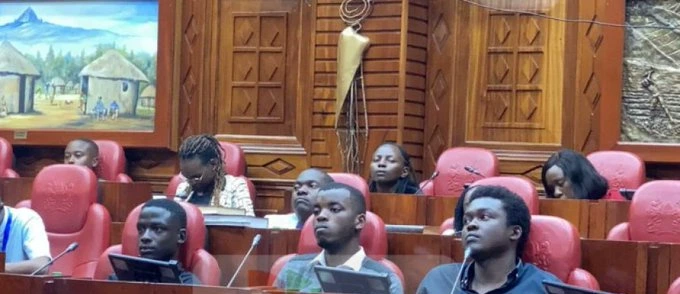A few weeks after cryptocurrency project Worldcoin started operation in Kenya, thousands of Kenyans turned up for registration until the government banned its services.
The registration exercise involved scanning of one’s eyeballs in exchange for a digital identity called World ID. New members receive 25 free cryptocurrency tokens, known as WLD, valued at Sh7,786, after the exercise.
Some of the victims are now complaining of health issues while claiming the company short-changed them.
One of the victims, identified as Marube Mogusu, said after his eyes were scanned, he did not receive the Sh7,000 that had been promised but was instead given Sh2,000.
Mogusu was speaking before the National Assembly Ad Hoc Committee of Inquiry into the Worldcoin controversy. He added that he started experiencing eye problems after the exercise.
“After the scan, my eyes started becoming watery. I have been on prescribed glasses ever since that time. I don’t know if it is a coincidence or it is the world coin scan,” he told the committee.
CS Nakhumicha: Health risks Kenyans exposed themselves to while scanning for Worldcoins
The purpose of eye-scanning, according to the company, is to verify that those utilizing the platform are real human beings.
It was, however, alleged that there was no written consent between the cryptocurrency firm and users to have their eyeballs scanned and private data collected.
“The guys just told me they were doing the scan, and I should receive a grant. I was skeptical, but the moment he mentioned money, I went ahead,” Bogita Minyega, another student, said.
The government suspended Worldcoin’s operation in Kenya to allow an evaluation of possible risks to the public.
While announcing the suspension, Interior Cabinet Secretary Kithure Kindiki said that the ban will remain in effect until relevant security, financial services, and data protection agencies establish the authenticity and legality of their activities.










